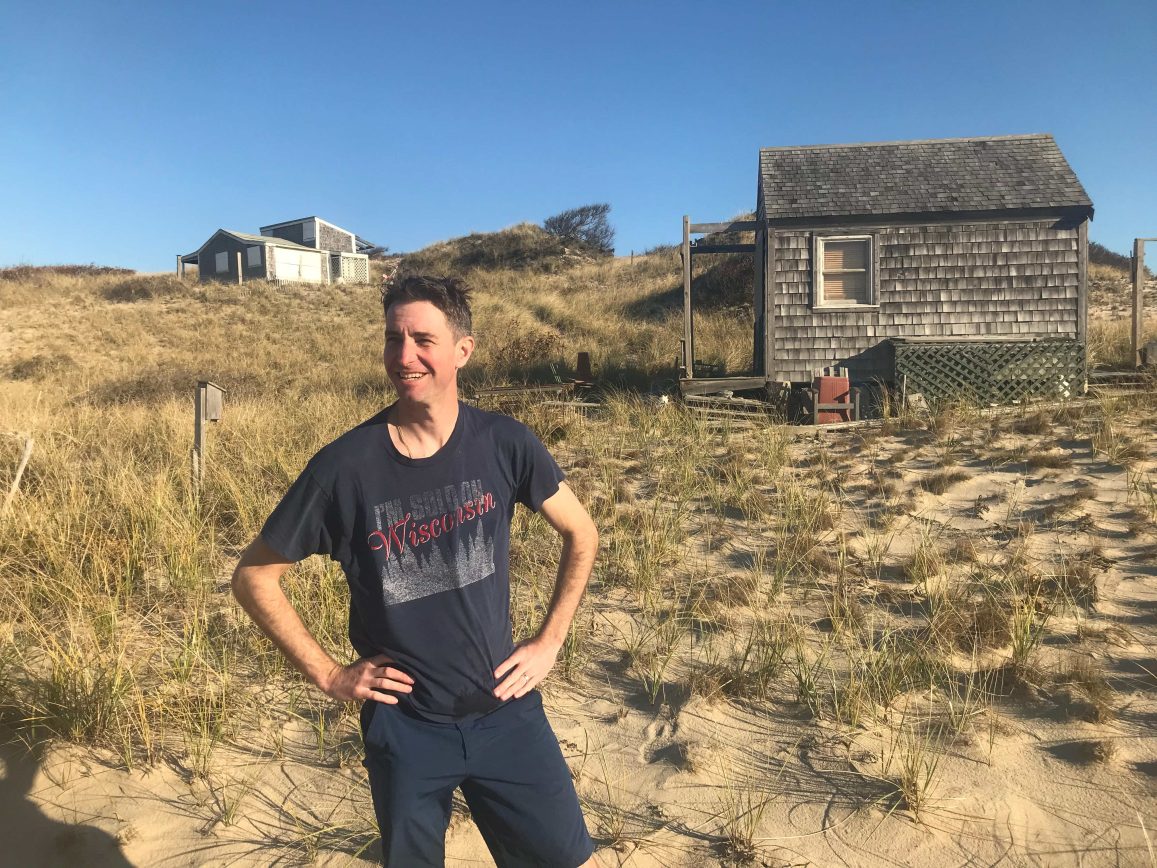As the year turns in Alaska, outdoor rituals mark shifting seasons.
Picking berries, harvesting gardens, splitting wood, first frost…
Upon my family’s return from an overdue trip to Cape Cod, I’ve been thinking about how vacation fits into this puzzle. And what a boon it can be for a writer.
For many, vacation is a regular part of the Alaskan lifestyle. Revisiting Hawaiian beach haunts may follow caribou hunts.
While things like freeze-up, ice skating, waxing skis and seeking northern lights remained unaffected by the pandemic, vacation took a hit.
Routine can be a gift and a curse, certainly for writers. For all my projects it’s been pivotal.
But what about when we as writers have fallen into routines that do not include writing?
Spending extended time with my parents on Cape Cod helped me see the dynamic value of leaving (and returning to) Alaska. Within bronzed hardwood forests and upon sun-glittered beaches, it glowed.
Walking a pondside path behind my parents’ condo I reveled in identifying trees – beech, sassafras, maple, red and white oak. An extra lift arrived when noisy blue jays, titmice, goldfinches and woodpeckers shuttled in to gather food. When a pair of river otters swam alongside, or a baby bunny hunkered in underbrush.
The ordinary beauty of this forested pond intensified when the animals were incorporated. To feel it alive.
Crust skiing, basketball playoffs, break up, bird migration, bear tracks, tuning up bikes…
At a Falmouth beach, at sunset, blood orange mirages dyed the horizon. But my eye and ear stuck to a dozen laughing gulls fishing. Cormorants arrowed along the surface. A single sanderling pedal-pecked in the surf. The beach, in psychedelic neons, shone more luminous when viewed as a healthy habitat.
Collecting fiddleheads, green-up, training for Mt. Marathon, warbler song…
We had a lovely day in Provincetown. A scrumptious lobster roll from Canteen – one of the few still-open restaurants. We walked brick-cobbled streets. I got lost in daydreams of what a merry life it would be here. Similar to Seward, I realized – seasonal destination, end of the road, marine wildlife, kind residents, such as the barista who recommended a hike through giant sand dunes.
Awed at the outset, I was reminded of the original “Dune” (the re-make was playing at a nearby theater). Veins of scrub pine and even oaks offered shelter. But it wasn’t windy. Engraved circles ringed grass blades, previous breezes spinning tips like clock hands. Lichen frosted lowland floors. We stepped beside several species of fungi. When the royal ocean appeared, so did artist shacks utilized by the likes of Eugene O’neill.
Then the expansive beach impressed. We had it all to ourselves. The ocean surged, barfing surf and yanking it back. Along the wrack line I examined lobster shells. When I looked up (out of my dreams of writing a hit short story in a ramshackle hut) there’d often be a gray seal studying me.
Dipping for hooligan, planting gardens, snagging sockeyes, morel mushroom hunting…
It was a treat to purchase a quart of fresh cranberries and walk around a marsh. We checked out tractors, equipment and “carpets of cranberries” (as my daughter remarked) lining the ditches padding pink bogs.
Grandparents spending time with grandkids was special. And those breaks for me were revitalizing.
Strolling past seasonal sea-side cottages, I reflected on my first book launch. Instead of the Sisyphean pressures I often impose upon myself, I gave myself credit; I gave myself a break.
Seasonal workers departing, back to school, big game hunting, termination dust, winterizing boats…
Traveling – especially during COVID – has its stressors.
On the drive home to Seward, approaching Turnagain Pass, we hit an unidentified object.
Shredded tire.
Mindful of the issue with our spare tire, I grabbed my phone (no service); hopped out as a truck was pulling over. Quick talk and an angelic couple was driving me to a pullout with cell service.
Highway hero, Midnight Sun Towing (Moose Pass), was enroute post haste. Only one seat in his cab though. When I said, “There’s four of us,” the couple from Soldotna (headed to Arizona for the winter in three days) began clearing space in their backseat.
Back at our truck I learned that seven people had stopped to offer help.
Two more checked on me while I waited for the tow truck; meanwhile my family was on the way to Seward with the snowbirds, who would shovel a path to our front door before backtracking to Soldotna.
There are helpful people everywhere. But Alaskans seem especially eager to lend a hand.
The flat tire could have derailed the fortunes of a full vacation. It did the opposite. I got up early the next morning, head full of ideas, and started writing this essay.


Sean takes a reader there there in anything he writes. And in this fine post includes thought kernels that slide deeply into my awareness of today. East coast peace, Alaska kindness, both reasons for being thankful.
Thank you once again Sean for a wonderful read! Rod and I truly enjoyed! I had tears hearing about all the “helpers/heroes on your way home to Seward.
“I got lost in daydreams of what a merry life it would be here.” Great line! Loved reading your imagism and alliterative rhythms from the travelogue tone of Seward Soundboard extended to your fam on the Cape!
I loved the read. It is so wonderful that so many people stopped to help. Looking forward to your next book.
The return of vacation post-covid, and what it means to us all, is a timely topic. Thanks for sharing your Cape Cod insights. I enjoyed the ribbon of East coast description and Alaska seasonal themes woven throughout. The tire blow out ending took me by surprise, especially as the kindness of strangers became another highlight of emerging from our pandemic cocoons. Great work!